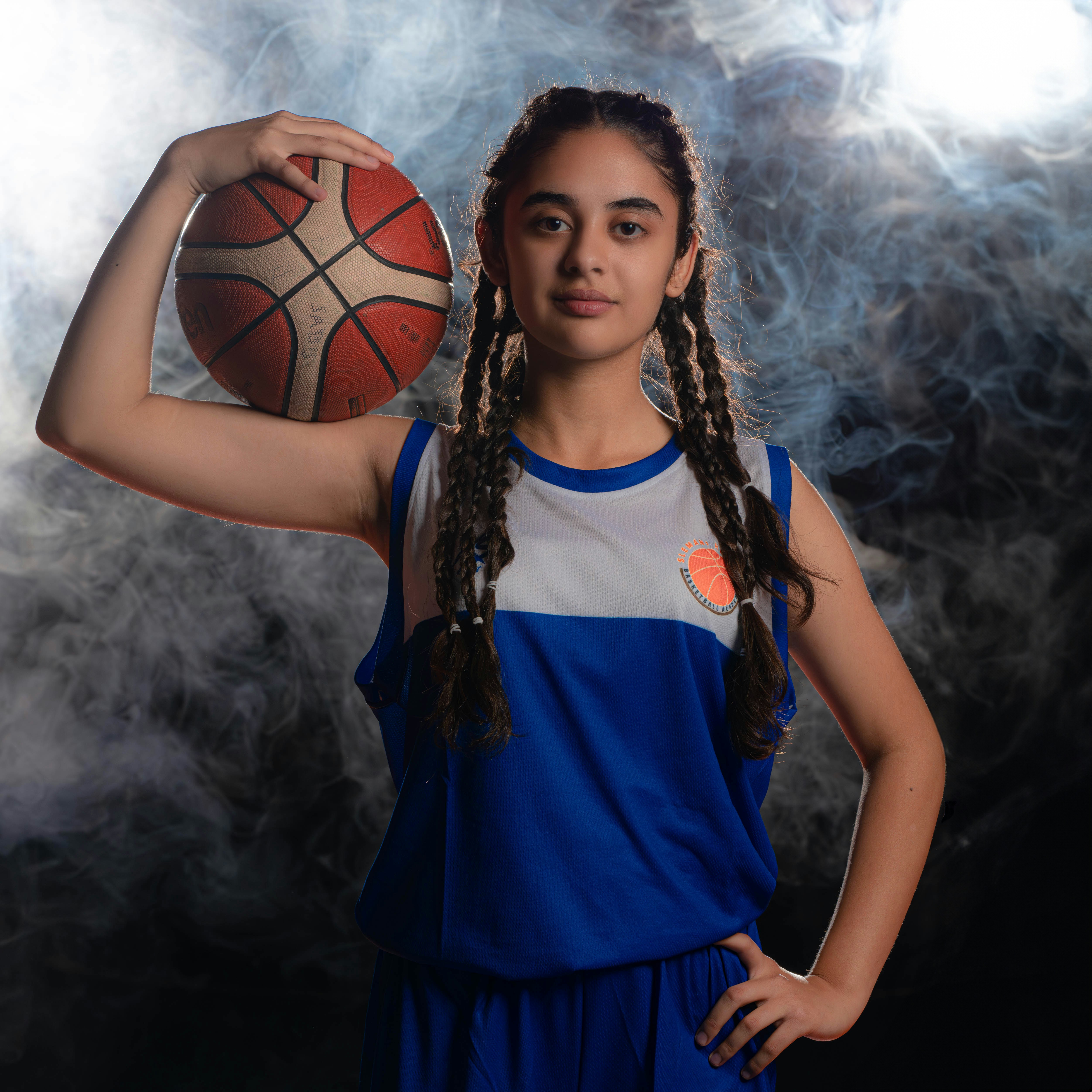
Introduction to the Final Four Showdown
The anticipation surrounding the upcoming Final Four game has reached unprecedented levels as the spotlight focuses on two extraordinary athletes: Dawn Staley and Paige Bueckers. This highly anticipated matchup not only represents a clash of skill and strategy but also embodies the pinnacle of collegiate basketball. Both players have carved their own legacies in the NCAA, making this encounter even more historically significant.
Dawn Staley, the head coach of the South Carolina Gamecocks, boasts an illustrious career both as a player and a coach. Under her guidance, the Gamecocks have emerged as a force to be reckoned with in women’s basketball, achieving multiple conference titles and a national championship. Staley’s coaching philosophy emphasizes resilience, teamwork, and skill development, principles she instills in her players, contributing to their success on the basketball court. Her leadership has not only transformed the South Carolina program but has also set a benchmark for other teams in the NCAA.
On the other hand, Paige Bueckers has quickly established herself as one of the most talented athletes in women’s basketball history. As a standout player for the UConn Huskies, Bueckers has showcased her exceptional skills, garnering attention nationwide. Her offensive versatility, court vision, and ability to perform under pressure have made her a household name and an integral part of UConn’s pursuit of glory. Bueckers’s poise and talent have led her team to significant victories, and she is poised to play a crucial role in the upcoming showdown.
The stakes could not be higher, as both teams vie for a coveted spot in the championship match. This showdown is not only about securing a place in history but also serves as a testament to the growth and evolution of women’s basketball in the NCAA. With Staley and Bueckers at the helm, the Final Four promises to be a thrilling contest that will further define the legacy of these talented athletes.
Dawn Staley: A Legacy in Women’s Basketball
Dawn Staley, a luminary in the realm of women’s basketball, has crafted an extraordinary legacy through her accomplishments both on and off the court. Born on May 4, 1970, in Philadelphia, Staley’s passion for the game ignited during her formative years. She showcased her talent at the collegiate level while playing for the University of Virginia from 1989 to 1992, where she established herself as one of the premier players in NCAA history. Under her guidance, the Cavaliers rose to prominence, culminating in an NCAA Final Four appearance in 1991. Staley’s exceptional skills earned her numerous accolades, including the Naismith College Player of the Year award, which underscored her impact as a student-athlete.
Staley transitioned to a successful professional career, playing in the American Basketball League (ABL) and the Women’s National Basketball Association (WNBA). Her prowess on the court was evident as she represented the USA in international competitions, culminating in her contributions to the 1996, 2000, and 2004 Olympic teams, all of which brought home gold medals. Staley’s attributes as a leader and her dedication to the sport were instrumental in her selection as team captain. These experiences further solidified her reputation as one of the trailblazers in women’s basketball.
In her subsequent role as a coach, Staley has continued to shape the future of the game. She has been the head coach of the University of South Carolina women’s basketball team since 2008. Under her leadership, the program has achieved unprecedented success, including clinching the NCAA Championship in 2017 and 2022. Staley emphasizes the importance of mentorship and representation, inspiring younger generations of female athletes to pursue excellence in sports and foster a passion for the game. Her legacy is not only marked by her personal achievements but also by her unwavering commitment to elevating women’s basketball as a whole, ensuring the sport’s continued growth and recognition for years to come.
Paige Bueckers: The Rising Star
Paige Bueckers has emerged as one of the most electrifying talents in modern basketball, showcasing extraordinary skills that have quickly garnered attention across the collegiate sports landscape. As a standout athlete at the University of Connecticut (UConn), her journey reflects resilience, dedication, and a profound impact on her team. Born in 2001, Bueckers began making waves in high school, earning the title of the nation’s top recruit and setting the stage for her transition to college basketball.
Her gameplay is characterized by a unique combination of agility, court vision, and strategic acumen, which not only makes her a formidable scorer but also a pivotal playmaker. Throughout her freshman season at UConn, she demonstrated an ability to perform under pressure, consistently delivering stellar performances in critical games. Bueckers averages impressive statistics, including points, assists, and rebounds, all reflecting her versatility on the court. Her capability to read defenses and make split-second decisions distinguishes her from her peers, establishing her as a disproportionate cornerstone of her team’s successes.
Moreover, Bueckers’ influence extends beyond individual accolades; her leadership and high basketball IQ bring a cohesive dynamic to her squad. She is known for elevating the performance of those around her, frequently creating opportunities for teammates, thus fostering a collaborative environment on the court. Her presence has helped solidify UConn’s position as a perennial powerhouse in women’s basketball.
As the season progresses, the potential for Bueckers to reshape the landscape of women’s basketball becomes increasingly apparent. With her combination of skill, poise, and marketability, she serves not only as an athlete but also as an inspiration for future generations. Observers of the sport recognize her as a pivotal figure who may redefine the expectations for young female basketball players in the years to come.
What’s at Stake: Title Aspirations and Legacies
The Final Four matchup between Dawn Staley and Paige Bueckers not only represents an exciting clash of titans in women’s collegiate basketball but also serves as a pivotal moment for both individuals and their respective programs. For Staley, a victory signifies more than just another championship; it reinforces her legacy as one of the most influential figures in the sport. As the head coach of the South Carolina Gamecocks, a triumph would solidify her status among coaching greats, showcasing her ability to develop talent and lead a team to success amidst fierce competition. Winning the title could ultimately become a hallmark of her career, further amplifying her voice in advocating for women’s sports on a national level.
Conversely, for Bueckers, who has already made waves as a remarkable player, a championship victory can elevate her legacy to unprecedented heights. Currently regarded as one of the top talents in women’s college basketball, Bueckers has the chance to not only claim a national title but also to cement her place in history as a transformative player. Her journey thus far has witnessed record-breaking performances and individual accolades, yet, a championship win would complement her achievements, showcasing her ability to lead a team under pressure. It may serve as a platform for her future endeavors, potentially influencing her decision on whether to pursue the professional circuit or further her academic aspirations.
Moreover, the implications of the game extend beyond personal legacies. For both programs—the Gamecocks and UConn—securing the championship title adds to their storied histories, generating excitement around recruiting and boosting institutional pride. As fans eagerly anticipate this momentous encounter, the stakes are undeniably high, promising to shape the future narratives of both Staley’s and Bueckers’ careers in dramatic fashion. The outcome will not only reflect their aspirations but could also influence the trajectory of women’s collegiate basketball for years to come.
Tactical Battle: Coaching Strategies and Matchups
The upcoming showdown between Dawn Staley and Paige Bueckers promises to be an intriguing display of tactical acumen and strategic gameplay. Dawn Staley, the head coach of the South Carolina Gamecocks, has always emphasized a strong defensive approach, which is evident in her team’s ability to apply relentless pressure on the ball and force turnovers. Her coaching strategy often includes a mix of man-to-man defense and zone looks, allowing her to adjust based on the strengths and weaknesses of her opponents. This flexibility is likely to play a significant role against Bueckers’ UConn squad, known for its fast-paced offensive style.
Conversely, Paige Bueckers, although primarily recognized for her exceptional skills as a player, has increasingly taken on leadership responsibilities. Her insight into the game enables her to orchestrate plays and create opportunities for teammates, showcasing a level of tactical awareness often seen in seasoned coaches. Bueckers tends to leverage her team’s versatility, utilizing a combination of movement and spacing to stretch defenses. This allows standout players to exploit mismatches, particularly in key matchups around the perimeter, where speed and agility can dictate tempo.
Central to the tactical battle will be specific player matchups that can shape the flow of the game. For instance, Staley may opt to place one of her top defenders on Bueckers, attempting to limit her scoring opportunities and facilitate turnovers. On the flip side, Bueckers could target defending mismatches against South Carolina’s interior players, maximizing her team’s chances to penetrate the paint or create open shots from the arc. Such decisions will be pivotal in determining which team’s strategies prevail, making the tactical elements of this Final Four showdown not only critical but also captivating to observe.
Key Players to Watch in the Final Four
As the Final Four approaches, the spotlight typically shines on the marquee players, yet it is essential to consider the other key athletes who could significantly influence the game’s outcome. Both teams boast a roster of talented players, each bringing unique skills and attributes to the floor.
From Team Staley, players such as Zia Cooke and Aliyah Boston emerge as pivotal contributors. Zia Cooke, known for her explosive scoring ability and agility, has averaged over 15 points per game this season. Her capacity to create shots, coupled with her defensive tenacity, makes her a dual threat on both ends of the court. Additionally, Aliyah Boston’s presence in the paint cannot be overlooked. Standing at 6-foot-5, this center has garnered attention for her rebounding prowess and shot-blocking skills, which have played a key role in the team’s success throughout the tournament. Her effective field goal percentage of over 60% underscores her efficiency and importance in converting scoring opportunities.
On the opposing side, UConn’s Paige Bueckers is another player to watch. Bueckers, often regarded as one of the top talents in college basketball, has an uncanny ability to control the pace of the game. With an average of 20 points per game, her knack for distributing the ball and finding open teammates enhances the offensive flow significantly. Alongside her, Aaliyah Edwards brings a versatile skill set, known for her rebounding and scoring capabilities, making her an invaluable asset during crucial moments.
These athletes exemplify the depth and talent present in both squads. Their performances during the Final Four will undoubtedly shape the narrative of the matchup, as every rebound, assist, and basket carries the potential to tilt the scales in favor of their respective teams. As such, keeping an eye on these key players will provide insights into the dynamics of the game and ultimately the path to victory.
Historical Context: Previous Final Four Matchups
The NCAA Women’s Basketball Final Four has a rich history that has significantly shaped the narrative of women’s sports. Since its inception in 1982, the tournament has been a platform where legendary players and unforgettable moments emerge, influencing the future of the sport. This section will explore some notable Final Four matchups that have left a lasting impact, setting the stage for the contemporary rivalry between Dawn Staley and Paige Bueckers.
One of the most memorable Final Four games occurred in 1995 when the UConn Huskies, led by Rebecca Lobo, faced the Tennessee Lady Volunteers, helmed by the iconic Pat Summitt. This matchup not only underscored the fierce competition, but it also amplified the visibility of women’s basketball, showcasing its capacity for thrilling play and elite-level talent. The intensity of this game contributed to the ethos of rivalry that would later heighten expectations for teams participating in the Final Four.
The legacy of the tournament continued to evolve with the rise of players such as Diana Taurasi and Breanna Stewart, who dominated their respective years. Stewart’s contributions were pivotal during her time at UConn, where she led her team to multiple championships, further solidifying the institution’s status in women’s basketball. Matches featuring these star athletes brought attention to the sport, highlighting the importance of player rivalries and the role of team dynamics in achieving success.
As we look forward to this year’s matchup between Staley and Bueckers, it is vital to recognize how these historical encounters have influenced the competitive landscape of the NCAA Women’s Final Four. Each game, laden with emotion and significance, plays a role in shaping the expectations and legacies of future athletes, making the current tournament a continuation of a transformative journey in women’s basketball.
Fan and Media Reactions Leading Up to the Game
The excitement surrounding the upcoming Final Four showdown between Staley and Bueckers has reached a fever pitch, with fans and media alike generating an electric atmosphere in the lead-up to the game. Social media platforms have become a vibrant hub for enthusiasts, as hashtags related to both players trend on Twitter and Instagram. Fans are sharing their predictions, memories of past matchups, and personal stories about their favorite players, creating a palpable sense of community and anticipation.
Sports analysts and commentators have also chimed in, dissecting the skills and strategies of both teams. Numerous articles and podcasts have emerged, providing in-depth analyses of Staley’s coaching prowess and Bueckers’ remarkable talents. The media is not only focusing on player capabilities but is also highlighting the broader implications of this matchup for women’s basketball. Discussions regarding the cultural significance of having such iconic figures in the sport at this level have intensified, emphasizing their roles as trailblazers for future generations of athletes.
Moreover, fan engagement has manifested in various forms, from online polls to dedicated watch parties planned in local communities. Merchandise sales have spiked, with jerseys and memorabilia flying off the shelves as supporters rally behind their teams. Ticket availability has become a hot topic, with many fans scrambling to secure their spot for what is anticipated to be a historic match. As the game day approaches, excitement continues to build, reflecting the tremendous public interest in this legacy battle. The blend of fan enthusiasm and media coverage offers a lens through which the monumental nature of this matchup can be appreciated, showcasing not only the talent of Staley and Bueckers but also the growing importance of women’s sports in the broader cultural landscape.
Conclusion: Impact of the Game on Future Generations
The recent Final Four showdown between Dawn Staley and Paige Bueckers not only highlighted two remarkable talents within women’s basketball but also underscored the significance of such high-profile matchups for future generations of athletes. The thrilling encounters observed during this championship are likely to resonate with aspiring young players who are eager to emulate their heroes. The visibility brought by such events can inspire a new wave of talent, motivating them to dream bigger and aim higher within the sport.
As we reflect on Staley’s strategic prowess and Bueckers’ undeniable skill, it is evident that their impact extends beyond the court. Their achievements serve as beacons of hope and perseverance for young women pursuing their passions in sports. Such moments not only ignite interest in women’s basketball but also promote the idea that female athletes can achieve greatness and receive recognition comparable to their male counterparts. The energy and skill showcased during the tournament will likely encourage more girls to participate actively in basketball, thus shaping the sport’s trajectory.
The narrative built around Staley and Bueckers emphasizes the dual responsibility of excelling in performance while serving as role models. As these athletes continue to evolve in their careers, they will invariably influence the ethos of future competitions, advocating for inclusivity and diversity within the sport. The lingering effects of the Final Four showdown will undoubtedly foster an environment where young players feel empowered to pursue their dreams, challenge norms, and aspire for excellence. The legacy of this encounter is one of hope, ambition, and unwavering determination—qualities that will undoubtedly leave a lasting mark on the future landscape of women’s basketball.






